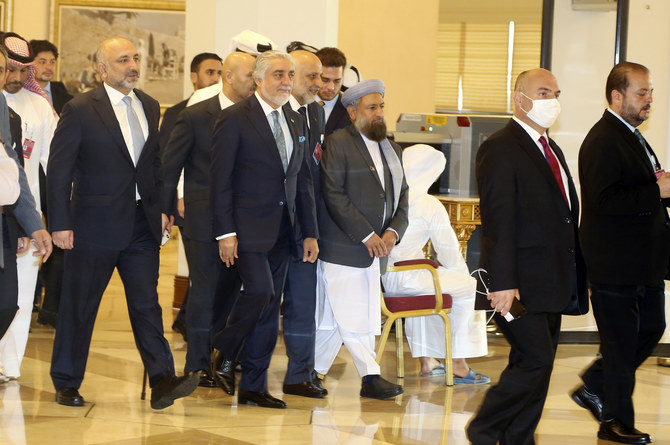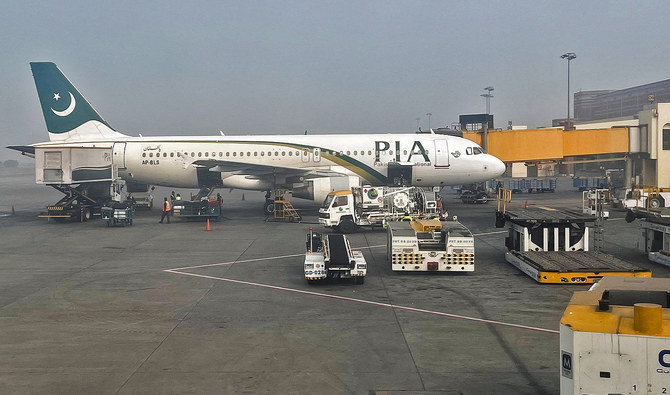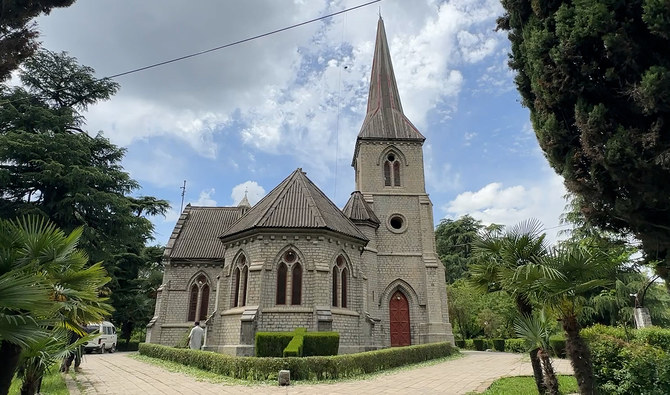ISLAMABAD: Senior Taliban leaders sat down for face-to-face talks with Afghan officials in Doha, Qatar for the first time on Saturday to chart out an agreement over the future political roadmap for Afghanistan and end a decades-old conflict in the war-torn country.
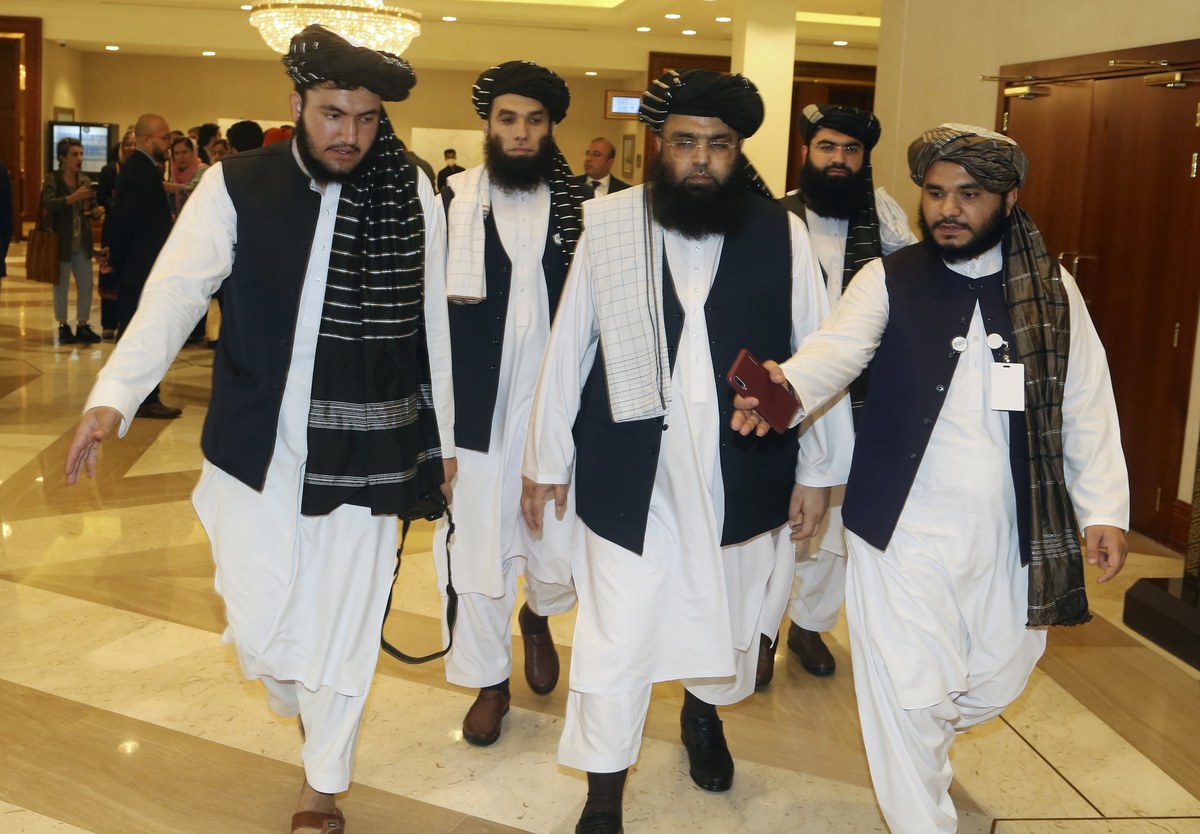
A few members of the Taliban delegation head to attend the opening session of the peace talks between the Afghan government and the Taliban in Doha, Qatar, Saturday, Sept. 12, 2020. (AP Photo)
In a speech during the opening session of the long-awaited negotiations, Dr. Abdullah Abdullah, Chairman of Afghanistan’s High Council for National Reconciliation, called for a “humanitarian cease-fire” and urged both sides to use this “exceptional opportunity” to achieve peace and to “together define a new future that is acceptable and supported by all Afghan citizens.”
The Taliban, for their part, said that they would “ensure a peaceful life, security and stability for the Afghan nation,” during the negotiations.”
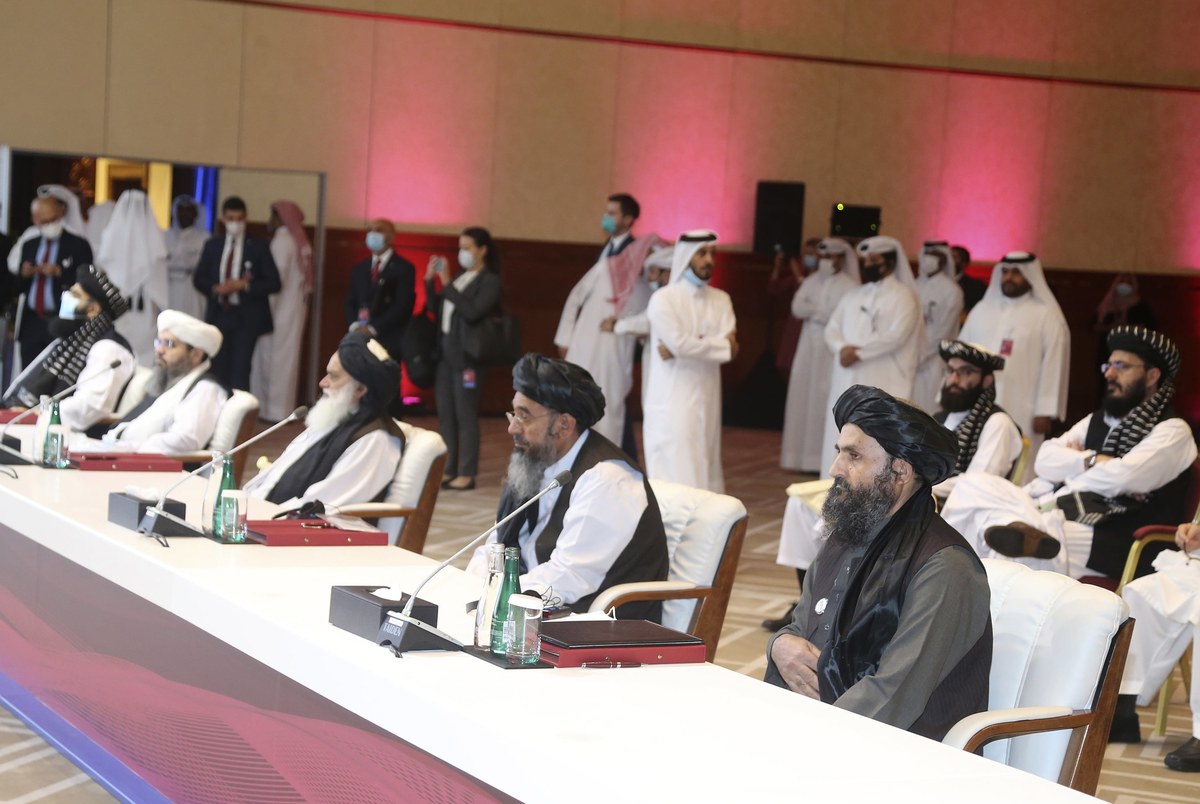
Taliban delegation attend the opening session of the peace talks between the Afghan government and the Taliban in Doha, Qatar, Saturday, Sept. 12, 2020. (AP Photo)
Mullah Abdul Ghani Baradar, chief of the group’s political office in Qatar, did not immediately comment on Abdullah’s call for a cease-fire but said that the Taliban were committed to “implement an agreement with the United States and expect the same from the Americans.”
“We should not sacrifice the main objective of peace for personal interests and political objectives. We assure the international community that we will try our best that the intra-Afghan negotiations should produce positive results,” he said, adding that the Taliban want Afghanistan “to enjoy cordial relations with neighbors, regional countries and the international community.”
The intra-Afghan negotiations were due to begin on March 10, but delays over an exchange of prisoners — 5,000 held by the Afghan government and 1,000 by the Taliban — hindered efforts to get the talks underway.
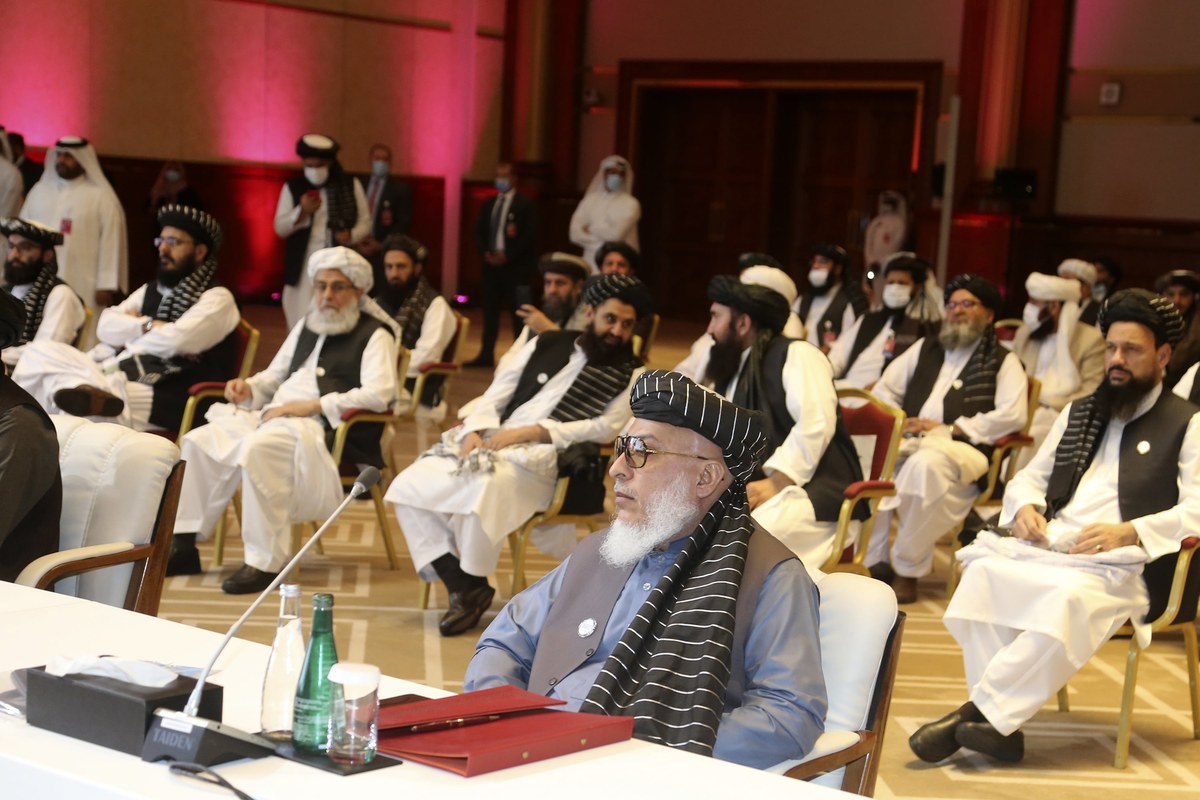
Taliban negotiator Abbas Stanikzai, right, with his delegation attends the opening session of the peace talks between the Afghan government and the Taliban in Doha, Qatar, Saturday, Sept. 12, 2020. (AP Photo)
US Secretary of State Mike Pompeo welcomed the Taliban’s commitment not to host international terrorist groups, including the Al Qaeda, nor to allow them to use Afghan territory to train, recruit, or raise funds for them.
“Today is a truly momentous occasion. Afghans have at long last chosen to sit together and chart a new course for your country. This is a moment to dare to hope,” Pompeo said.
“As we look toward the light, we recall the darkness of four decades of war, and the lost lives and opportunities. But it is remarkable — and a testament to the human spirit — that the pain and patterns of destruction are no match for the enduring hopes for peace held by the Afghan people, and their many friends,” he said.
Sheikh Abdul Hakim, the group’s chief justice and a confidant of the Taliban chief is leading the 21-member team in negotiations with the Afghan government which is being headed by former intelligence chief Masoom Stanekzai.
The Taliban team includes 13 members of the Rehbari Shoura, the leadership council, who answer to the chief.
According to the initial schedule, both sides will hold discussions on negotiation principles and agenda; agreement on facilitators and the joint secretariat.
A Taliban official in Qatar told Arab News that the Taliban had “already prepared their agenda for the negotiations,” without divulging more details.
Speaking virtually, Pakistan’s Foreign Minister Shah Mahmood Qureshi said that it is now for the Afghan leaders “to seize this historic opportunity, work together constructively, and secure an inclusive, broad-based and comprehensive political settlement.”
“The forthcoming negotiations are for the Afghans to decide about their future. The Afghans alone must be the masters of their destiny, without outside influence or interference,” he said, before warning against “attempts by peace spoilers” from within and outside who will pose “formidable challenges.”
“We hope all sides will honor their respective commitments, persevere in the face of all challenges and setbacks, and remain unflinchingly committed to achieving a positive outcome,” Qureshi said, adding that “constant vigilance will be required to guard against their machinations.”
Meanwhile, Organization of Islamic Cooperation (OIC) chief Yousef A. Al-Othaimeen said that they had called upon all Afghan stakeholders to “engage in dialogue” and told the participants that it “completely supports the peace process” in Afghanistan.
He was joined by Subrahmanyam Jaishankar, India’s External Affairs Minister, who called for a cease-fire in his speech which was conducted virtually as well.
The first day of the talks saw participation from foreign ministers of China, India, Uzbekistan, Indonesia, Turkey, Norway, Spain, Finland, and Japan, with organizers saying that the closed-door meeting would start after the conclusion of the opening session which was open to the media and shown live via a video link.



